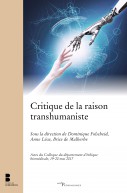
Husserl et le géostatisme
de Paul Ducros
Collection La Nuit surveillée
448 pages - nov. 2011
41,80€
Nous vivons, spirituellement, dans un monde désormais façonné par les représentations héritées de la science moderne. Depuis Copernic et Galilée, nous savons, selon un savoir objectif, que la Terre n'est qu'un corps spatial parmi les autres, en mouvement comme eux. La pensée phénoménologique, par son exigence hyperrationnelle, nous a appris que ces représentations de la science étaient oublieuses de dimensions essentielles et que persiste, irréductiblement, l'expérience subjective du « monde de la vie ». Husserl rappelle que, dans nos vécus primordiaux — et par conséquent indépassables —, nous ne cessons d'éprouver que « l'arche-originaire Terre ne se meut pas » : à chacun de nos pas, la Terre que nous foulons se révèle selon son immobilité essentielle. Ainsi se dessine une théorie pure du géostatisme qu'il ne faut confondre avec aucun géocentrisme. Cette Terre immobile, qu'il s'agit de décrire phénoménologiquement en reprenant et en amplifiant les analyses de Husserl, est toujours au-dessous de nos pas et en deçà de nos prises. Elle se révèle donc indisponible et inappropriable pour l'homme, car son désir d'emprise bute sur elle. Le sens phénoménologique de la Terre s'enrichit alors d'une portée éthique dont il faut dégager les conditions pour en faire apparaître les linéaments. À l'heure où l'homme s'enivre de ses propres pouvoirs jusqu'à risquer de tout perdre, la pensée phénoménologico-éthique de la Terre immobile n'a jamais été aussi actuelle ni aussi urgente. Si elle limite la puissance de l'homme, elle n'abandonne pas, bien au contraire, le sens absolument subjectif de notre vie.
--
From the spiritual point of view, we are now living in a world that is shaped by the representations of modern science as they have been passed on to us. Since Copernicus and Galileo, reason tells us that the Earth is one of many bodies in Space, moving as the others do. Phenomenology, with its hyper-rational demands, taught us that these scientific representations neglected certain essential dimensions that cannot be eradicated: the subjective experience of ‘the world of life’. Husserl reminds us that in our primordial experience, which is impassible, we have never ceased to feel that ‘the original Ark Earth does not move’: each step we take reveals the Earth we walk on in its essential immobility. Hence a pure theory of geostatic which must not be confused with geo-centrism. This immobile Earth, which we must describe in phenomenological manner by recalling and amplifying Husserl’s analyses, is always under our feet and beyond our grasp. Hence it is unavailable and cannot be appropriated by man, for it checks man’s desire for control. Hence the phenomenological meaning of the Earth is enriched by an ethical contribution whose conditions we must identify in order to reveal its characteristics. At a time when man is intoxicated with his own powers, to the point where he risks losing everything, phenomenological-ethical thinking of the Immobile Earth has never been so pertinent or so urgent. Although it limits man’s power, it does not abandon the utterly subjective meaning of our lives, quite the contrary.
--
From the spiritual point of view, we are now living in a world that is shaped by the representations of modern science as they have been passed on to us. Since Copernicus and Galileo, reason tells us that the Earth is one of many bodies in Space, moving as the others do. Phenomenology, with its hyper-rational demands, taught us that these scientific representations neglected certain essential dimensions that cannot be eradicated: the subjective experience of ‘the world of life’. Husserl reminds us that in our primordial experience, which is impassible, we have never ceased to feel that ‘the original Ark Earth does not move’: each step we take reveals the Earth we walk on in its essential immobility. Hence a pure theory of geostatic which must not be confused with geo-centrism. This immobile Earth, which we must describe in phenomenological manner by recalling and amplifying Husserl’s analyses, is always under our feet and beyond our grasp. Hence it is unavailable and cannot be appropriated by man, for it checks man’s desire for control. Hence the phenomenological meaning of the Earth is enriched by an ethical contribution whose conditions we must identify in order to reveal its characteristics. At a time when man is intoxicated with his own powers, to the point where he risks losing everything, phenomenological-ethical thinking of the Immobile Earth has never been so pertinent or so urgent. Although it limits man’s power, it does not abandon the utterly subjective meaning of our lives, quite the contrary.
- Dimensions : 135x215x30
- ISBN : 9782204094801
- Poids : 570 grammes
DANS LA CATÉGORIE
Être juif en Allemagne
Éthique et politique – Conférences et prises de position des années 1978-1991
d' Ernst Tugendhat
160 pages - avril 1993






